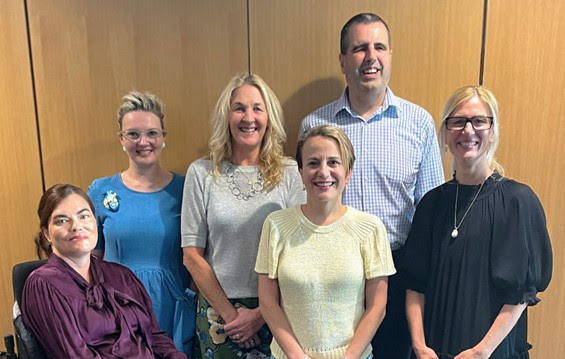
Whaikaha Restricted Purchasing Rules for Flexible Funding and Equipment and Modification Services
On 18th March 2024 Whaikaha made a shock announcement that they were implementing Purchasing Guidelines restrictions on supports available under ‘flexible budgets’. This means that the restrictions apply to some supports available under Individualised Funding, Enhanced Individualised Funding (Bay of Plenty), Choice in Community Living and EGL Personalised Budgets and Carer Support. Whaikaha claim the restrictions are necessary due to a budget overspend which would worsen if they didn’t act quickly.
Here is a LINK to the original Whaikaha announcement of the restrictions to the Purchasing Guidelines.
The restrictions were aimed largely at restricting what could be purchased with Respite and Personal Cares funding and included initial restrictions on (for example) such things are buying sensory toys, noise-cancelling headphones, therapy support such as Riding for the Disabled, etc. Some of these types of restrictions have since been slightly eased. Also restricted is the use of funding to travel outside one’s own region as well as restrictions on funding being spent on innovative Respite for the caregiver such as massages, manicures, etc. Koha/gift payments to people providing free support was also stopped.

Left to right:
Ronelle Baker – Kaihautū Chief Advisor Māori, Hayley Evans – DCE Corporate Services, Ginny Baddeley – DCE People and Culture, Paula Tesoriero – Chief Executive, Ben O’Meara – DCE Policy, Strategy and Partnerships, Amanda Bleckmann – DCE Commissioning, Design and Delivery.
Photograph of Whaikaha Executive Leadership Team, sourced from Whaikaha May 2024
The announcements caused an uproar in the sector and there were/are numerous media articles regarding these restrictions. Part of the outrage was because the announcements were made unexpectedly via a post on Whaikaha’s Facebook page and their website. There was also a lack of engagement with the disability sector regarding the restrictions and whether there might be other ways to address the budget shortfall. Whaikaha have since explained they were concerned that notifying people in advance may have caused people to go on a spending spree before the restrictions kicked in.
There has been little engagement from Whaikaha since the restrictions were announced. However, on 22nd March Whaikaha CEO Paula Tesoriero made this video statement and apology for the way the restrictions were communicated.
Following immense feedback from disabled people and families there were some revisions to the Purchasing Guidelines to clarify the restrictions and indicate an easing of some restrictions. Here is the latest 24th April version of the Purchasing Guidelines. Note, the guidelines are now called Purchasing Rules.
In early May Whaikaha uploaded to their website their documents related to an Official Information Act request related to the Purchasing Rules restrictions. The documents are available here.
I have read all the released documents and followed this issue closely. Here’s my brief informal summary of the situation:
- The Whaikaha Executive Leadership Team (ELT) is comprised of four “business” groups, each headed by a Deputy Chief Executive (see picture below). There is also a Maori advisor on the ELT. This ELT seem to have first began discussing the looming non-operational budget overspend in December 2023. Non-operational budget is the funding pool Whaikaha has, to spend on various disability supports including personalised budgets. Several reasons for the overspend were detailed including the growth in disabled people seeking funded support via their NASC (including a growth in those with autism requiring support), growing costs related to Residential Care including Individualised funding models (eg: where a disabled person is supported by intensive 2:1 support), general cost pressures, and the significant increase in use of flexible budgets. Here is a quote from one of the documents: “Flexible funding, particularly IF, is one of the fastest growing areas of Whaikaha expenditure, with expenditure more than doubling (from $230 million to $520 million) between 2019/20 to 2023/24. In that time, the number of people with these supports has increased from just over 20,000 to almost 34,000.”
- Whaikaha communicated with the then Minister for Disability Issues Penny Simmonds on 5th December 2023 in a broad document outlining some current challenges in the disability sector and a guide called About the Disability Support System.
- In a 20th December 2023 memo to the Whaikaha ELT CEO Paula Tesoriero outlined the financial constraints facing disability support services. There was concern stated regarding the need to prioritise disabled people’s most urgent and necessary need for support first. Also, that in a more fiscally constrained environment (under the new current Government) that it may be hard to justify some expenditure under flexible budgets. Work on how to address budget restraints was delegated to the Deputy Chief Executive, Commissioning Design and Delivery (Amanda Bleckmann).
- On 19th February another memo to the ELT by Paula Tesoriero and Amanda Bleckmann asked for approval to implement a raft of budget restrictions, particularly focussed on the flexible funding streams including Individualised Funding, Enhanced Individualised Funding, Choice in Community Living, Personal Budgets and Carer Support. Suggestions included stopping the use of funding for some travel/accommodation, self care therapies (hairdressing, manicures, pedicures, etc), supports which are available via other funding streams such as Equipment and Modification Services and Behaviour Support and supports which are the responsibility of other agencies/ministries such as transport, equipment, health therapies and Day Programmes. Concern was also expressed in this memo that doing nothing may result in decreased confidence in the flexible disability funding system such that even greater funding constraints might be required.
- At the same time a re-enacted rating system to access Equipment and Modification Services was also suggested, by prioritising those with the greatest need (P1) and others (P2) would need to remain on the waitlist until further funding for equipment became available.
- In February 2024 Whaikaha notified the (then) Minister for Disability Issues Penny Simmonds of their intention to implement the restricted Purchasing Guidelines in March 2024. Another update was provided to the Minister in March 2024.
- The restrictions to the Purchasing Guidelines were introduced to the disability sector on 18th March, via a Whaikaha Facebook post and on their website. In the Whaikaha documents there was mention that prior notification to the disability sector may have risked a hurried spend up of flexible budgets prior to the restriction rules being activated.
In late April it was announced that Minister Penny Simmonds had lost the disability portfolio and this was now allocated to Minister Louise Upston. In early May Minister Upston announced the Review of Disability Services administered by Whaikaha Ministry of Social Development – the review will also address how to ensure the long term sustainability of funded disability supports. And on 14th May she announced who the Reviewers will be:
“Sir Maarten (Wevers), a former Chief Executive of the Department of the Prime Minister and Cabinet who has held numerous governance and advisory roles, will be aided by Tregaskis Brown Senior Partner Leanne Spice and Wellington City Missioner Reverend Murray Edridge.”
 Complex Care Group
Complex Care Group